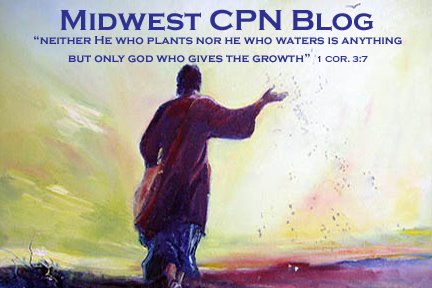In August of 2006, I opened up to the Gospel of John 12:24-26 in front of a small group of believers in my home. I read the following words: Truly, truly, I say to you, unless a grain of wheat falls into the earth and dies, it remains alone; but if it dies, it bears much fruit.
Little did I know I wasn’t just explaining a text, but I was foretelling the future of the group. I described how we could make all of the plans we wanted, but if God had in it for our small group at the time to die in order to give birth to something else we hadn’t even imagined yet, that must be ok. Less than 2 years later, after several changes and adaptations, we indeed had to come to the conclusion that a death had occurred, but hopefully not without giving the hope of life.
I won’t go into great detail, but what I will offer here is a brief list of some of the key reasons I believe our ‘church plant’ failed (emphasis on the ‘our’ and ‘church plant’). I do this to both warn potential church planters who may read this and to share what we’ve (and by we, I mean ME) learned in the process that will strengthen us for kingdom work now and in the future. These are very brief and I’m happy to talk more via email or the comments.
- Plant GOSPEL identities, not programs or services: The reason I put ‘failed church plant’ in quotes is because I do not believe we actually set out to plant a church ( and as if the work of God ever fails). We set out, like most church planters, to actually plant a service or some type of program that we hope one day will help us to graduate to being or launching a real church. Nothing could be further from the truth. All we can do is plant the gospel AS the church (and embody the identities it gives us as learners, family and missionaries) and only God can grow that church.
- Plant TOGETHER, not alone: Jesus led his ministry with others. Paul was always accompanied and helped in ministry by other faithful men. Setting out to plant or lead an apostolic ministry by yourself is suicidal. Outside of making sure we understand and apply the gospel faithfully, this is the greatest practical lesson I have learned and the mistake I want to avoid in the future. Planter–you need a committed team; even if it’s a small one. Further, you should have a solid group of believers that can encourage and commission you to the work.
- Be faithful, not cool–It is popular in many church planting circles today to plant a cool, hip church in the name of relevance. You get extra bonus points for being uber-sexy if you plant “in the city” as well. While we most certainly must embody the truth of the gospel in every context, we must remember that faithfulness is to be prized and the truth is always relevant.
- Be humbled, not overconfident: You can have the best laid plans and the best looking proposals, but without true gospel humility, you are destined for a fall. It’s just that simple. By all means, we should make responsible plans to shepherd people and do the work we’re called to, but structure must always submit to the Spirit.
- Live it as a family FIRST, don’t use your church as a crutch: If the church, as God’s people, are to be learners, family of God, and missionaries, your family should be able to demonstrate how they are growing more in the Word, how your marriage and parenting is grace centered and how you are loving your neighbor as yourself in word and deed. You can’t hide behind your church plant for long.
- Don’t go after people, pursue the God who will raise them up: By this I mean that there is a great temptation to recruit ‘the right people’ to your church plant or to re-arrange vision and values based on wanting to keep the people we like rather than to trust that God will bring the right people into your community, even if they’re not the people you would choose first. Remember that he chooses the simple and foolish things to confound the wise and glorify Himself. Christian community is not synonymous with Christian affinity.



